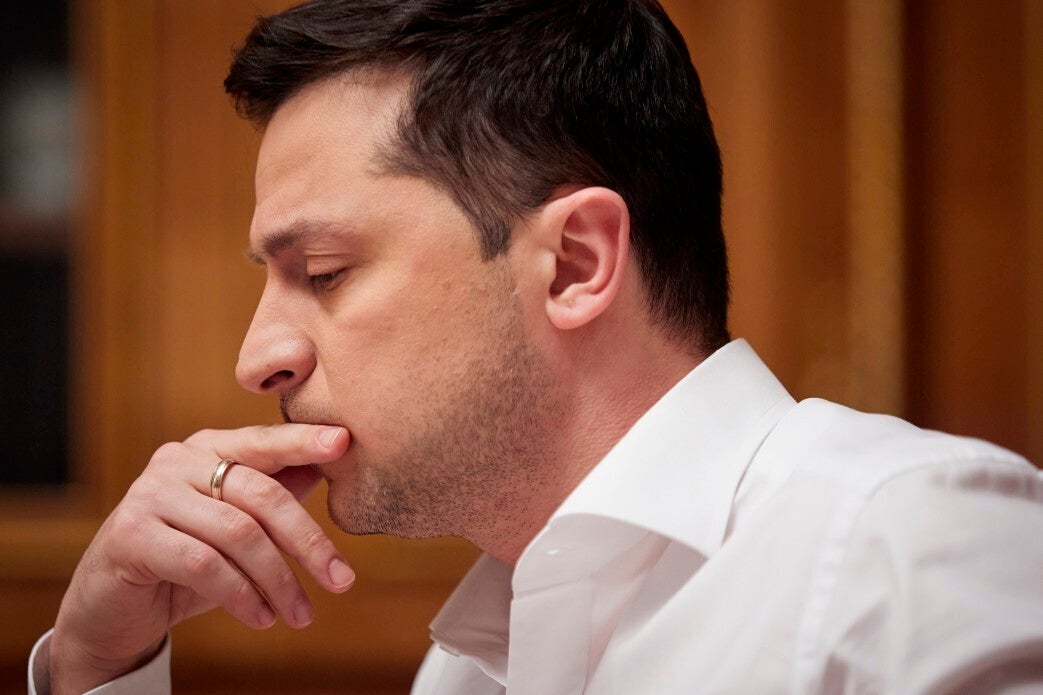Ukraine crisis updates: What to know amid the fears of a war
High-stakes diplomacy continues to try to avert a war in Eastern Europe

High-stakes diplomacy continued on Friday in a bid to avert a war in Eastern Europe The urgent efforts come as 100,000 Russian troops are massed near Ukraine s border and the Biden administration worries that Russian President Vladimir Putin will mount some sort of invasion within weeks.
Here are things to know about the international tensions surrounding Ukraine.
___
A DIPLOMATIC DEADLOCK
Russia’s top diplomat said Friday that Moscow will not start a war but that it wouldn’t allow the West to trample on its security interests.
Foreign Minister Sergey Lavrov said there is little room for compromise after the West rejected Russia’s key demands that NATO never accept Ukraine as a member and that it roll back deployments in Eastern Europe.
Lavrov said that “while they say they won’t change their positions, we won’t change ours.”
The top Russian diplomat noted, however, that the U.S. — in a recent written response to Russian demands — has suggested the two sides could talk about other issues of importance. Those include limits on the deployment of intermediate-range missiles, restrictions on military drills and rules to prevent accidents between warships and aircraft.
He emphasized that those issues are secondary to Russia’s main demands.
___
THE FRENCH CONNECTION
French President Emmanuel Macron is speaking to his Russian counterpart in hopes that diplomacy can avert a war.
Macron’s call with Russian President Vladimir Putin on Friday morning has two goals, French government spokesman Gabriel Attal said earlier this week: “to continue dialogue” and to “push Russia to clarify its position and the aim of (military) maneuvering.”
Macron “is at the heart of efforts towards de-escalation,” Attal added. He also said that Macron planed to speak soon to Ukrainian President Volodymyr Zelenskyy.
___
EXPOSING DISINFORMATION, BUT ARE THERE RISKS?
In a break from the past, the U.S. and its allies are increasingly revealing their intelligence findings as they confront Russian preparations for invading Ukraine, looking to undercut Putin’s plans by exposing them and deflecting his efforts to shape world opinion.
The White House in recent weeks publicized what it said was a developing Russian “false-flag” operation to create a pretext for an invasion.
Britain named specific Ukrainians it accused of having ties to Russian intelligence officers plotting to overthrow President Volodymyr Zelenskyy. The U.S. also released a map of Russian military positions and detailed how officials believe Russia will try to attack Ukraine with as many as 175,000 troops.
But the release of information isn’t without risks. Intelligence assessments carry varying degrees of certainty, and beyond offering photos of troop movements, the U.S. and its allies have provided little other proof. Moscow has dismissed Washington’s claims as hysteria and invoked past American intelligence failures, including false information put forward about Iraq’s weapons programs.
___
HOW IS UK BOLSTERING ITS CYBER DEFENSES?
The U.K.‘s National Cyber Security Centre is urging businesses to strengthen measures to protect computer networks amid the ongoing crisis in Ukraine.
The center said Friday that it is investigating recent reports of “malicious cyber incidents” in Ukraine and that these attacks are similar to a pattern of Russian behavior seen during earlier conflicts.
While authorities aren’t aware of any specific threats against the U.K., the center is encouraging large organizations to bolster online defenses to protect computer networks against potential attacks. The center is part of GCHQ, Britain’s signals intelligence agency.
“We are monitoring the situation closely and it is vital that organizations follow the guidance to ensure they are resilient,’’ said Paul Chichester, NCSC Director of Operations. “Over several years, we have observed a pattern of malicious Russian behavior in cyberspace.”
___
Associated Press writers Vladimir Isachenkov in Moscow and Danica Kirka in London contributed.
Bookmark popover
Removed from bookmarks